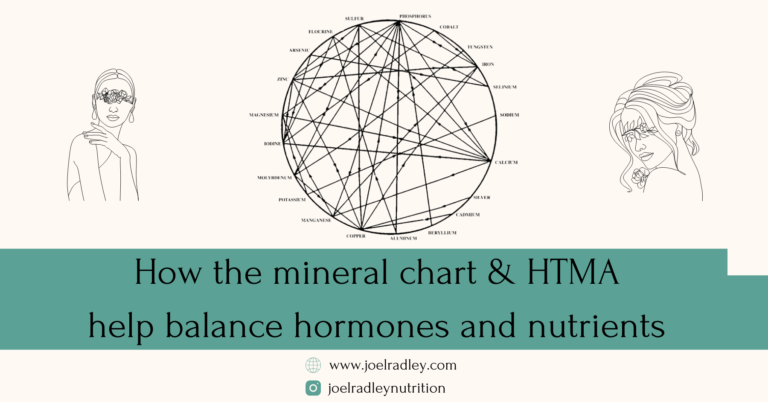Fasting is an ancient practice that dates back thousands of years. You tend to find various religious rituals involving fasting too. Even traditional folk knowledge says to avoid food when not feeling well, which is observed clearly in animals. Fasting is also a hot topic and is also confusing, in that many people have almost saved their lives with it whilst others have destroyed theirs, a lot of the time without even realising as we will discuss in this article.
Table of Contents
Table of Contents
Benefits of fasting
It has been touted as a cure for hormonal imbalance, gut dysbiosis, thyroid dysfunction, infertility, autoimmune conditions, chronic fatigue and brain fog. Many find it liberating such as OMAD which stands for one meal a day, where one can get on with priorities and not worry about cooking or taking time off to eat breakfast and lunch. Or intermittent fasting which can help reduce excessive calorie intake and shortens our eating window which then allows us to digest food better. It is touted that it will reduce resting glucose levels and help to balance insulin (1)
With all this positive knowledge on fasting, why would I be asking readers to consider not fasting?
Firstly, fasting is a tool and it’s how you use it that counts, you can’t just use a hammer to good effect if there is no nailing required. This article is not to negate the many wonderful benefits of fasting, otherwise described as not eating all the time when you don’t necessarily need it.
Issues with fasting for weight loss
The issue with the claim that it lowers your blood sugar is that in excess this can lead to excessive calories restriction, when you don’t consume enough sugar in the form of wholefoods as wholefood carbohydrates (dairy, fruit, veg, honey, fermented or traditionally prepared grains) break down into sugars, your body makes its own sugar, via gluconeogenesis. This is the breakdown or catabolisation of tissue & muscles like your brain and organs for energy. Whilst this may sound extreme it actually happens all the time, but in certain extreme conditions it can negatively impact us. Therefore some extreme weight loss cases due to fasting to some degree is due to the meat diet of eating yourself up. This is good for weight loss short term, but once you have met that ideal or close to weight, one needs to consider backing off or a reverse diet (will explain in a new article) for the below concerns that we will cover.
Do women react to fasting differently to men
Men and Women have a different physiology, and whilst there are many books promoting fasting for women, which I am in favor of, it depends on what your situation is, as for some with eating disorders, high stress, or nutrient deficiencies it can make things worse. For those who are either overweight, eat excessive processed foods and or dont leave enough time for their digestion, it can do wonders. Yet women tend to be more sensitive to physical stress on the body when compared to men. Particularly at different phases in ovulation and monthly cycles, and as women reach the menopause. Specified doses of stress cause the body to adapt, yet in excess and it goes the other way.
The plus is it makes your more adaptive to burn stored body fat, However, there are many men and women who are under-eating, overtraining, under-sleeping, and drinking too much coffee and alcohol. They then try to incorporate Intermittent Fasting on top of all those different forms of stress and problems that can occur. Usually more in women vs men.
This means that women do need to be more careful in their approach to incorporating intermittent fasting. Women should be more flexible in their approach and listen to their bodies during different stages of their cycles. If you have Irregular periods, sleep issues, mood swings, brain fog, pcos, pms, endometriosis, fibroids, infertility, you need to be extra careful with fasting, the right amount can help, but too much or the wrong kind can make issues worse.
Female hormones
Here is the catch, you can reap the benefits of various fasting practices, yet at the exact same time be negatively impacting your hormone production.
Estrogen – This is produced at two crucial points in the cycle which is a good time to fast or reduce excessive insulin activity as estrogen is in better balance when insulin is low.
Testosterone – This is related to your mid-cycle, this is when testosterone is ramped up, in these times we don’t want to increase cortisol too much as it limits testosterone production needed at this time, no more than 15 hours tops is recommended. I would actually avoid fasting altogether which technically means eat breakfast as if you ate dinner at eight pm, then by 11am it’s been 15 hours already of fasting.
Progesterone – This also peaks at two points in a cycle and is sensitive to both insulin and cortisol so one does not want to fast at all during this period, in fact eating more would be ideal.

Heavy periods & anaemia
Another factor often looked over is if you are bleeding, then fasting may be an issue as you may not be replenishing enough iron in the form of food.
Nutrient deficiencies
If you are deficient in certain nutrients this could be perpetuated with food restrictions. Nutrient dense meals will be reduced with fewer eating windows.
Bodies communication system
We need to learn to listen to our hunger and cravings above all modalities otherwise we are ignoring our bodies and just following a protocol. The cravings we naturally feel are there to maintain homeostasis and good health. Regular meals such as breakfast, lunch and dinner ensures we are nourished. Be careful if the fasting makes you feel deprived. In some cases with eating disorders skipping meals can lead to eating more and not feeling satisfied in meals you do eat.
Weight loss & thyroid health
Glycogen which is the stored sugar in our livers is utilised when we fast for energy. Yet when this depletes, we start to break down our own tissue as explained above via gluconeogenesis, to make glucose for energy. As mentioned above that is how we can also lose weight with fasting but this process also releases amino acids that are not helpful for your thyroid and slow down metabolism (anti-metabolic).
“Muscle catabolism also releases a large amount of cysteine, and cysteine, methionine, and tryptophan suppress thyroid function,” Ray Peat PhD.
Long term fasting can slow your metabolic rate down. This can then lead to you getting through life on a low calorie diet, but that won’t nourish your adrenal gland or thyroid, leading to poor hormonal balance and energy production. Over time you may feel you’re not hungry in the morning but this could simply be a sign of a slow metabolism, or your body is used to eating much later, which comes with drawbacks of poorer digestion. Now and again would not be a problem but what i see is one day on one day off or clients missing breakfast and sometimes lunch. Yes you can get success eating one meal a day but not everyone does. We don’t live in a traditional setting in nature and therefore we need to reduce the cortisol load.
When fasting for a long time, the liver may not detoxify well due to lack of energy.
Cortisol & adrenaline
As just mentioned life today can be stressful, this increases our bodies nutrient demands. Adrenaline and cortisol rise to stimulate tissue breakdown when we run out of liver glycogen. The high you feel when fasting actually could be signalling that stress hormones are being used to provide fuel. Therefore if you have blood sugar issues, this increased cortisol can affect that.
It could be said that fasting in some way is about short term survival over long term health, whereby your body signals that it is adapting and taking protective measures such as a body temperature of less than 98 during the day, or less than 97.8 upon rising, cold extremities, digestive distress, food allergies etc. Whilst using fasting correctly can manage various issues such as hormonal imbalance, blood sugar disregulation, being over weight etc, it may be better to first begin your journey of taking control of your hormonal imbalance, irregular periods, eating disorders, fatigue and stress first before jumping into fasting, to use fasting correctly as a tool after some balance and strength is gained.
1 to 1 professional support?
Whilst knowledge is power, sometimes we cant do it alone, either there is too much information, we need someone to coach us, we dont even know exactly what our issue is, or we are dissatisfied with the service of the consultants we have seen thus far. If this sounds like you, worry no more.
My Four-Pillar Protocol is designed to heal you on four planes, the physical is the bulk of our work together (Nutrition + Exercise + Grounding + Therapeutics), yet we will also touch on the emotional (Self-enquiry, Experiential-therapy, Connection to others + Objectivity to emotions), the Mental (Perspective + Meditation + Goals + Objectivity to thought), & the Spiritual ( Connection to higher self & all + Gratitude + Breath-work to reconnect.)
It is assumed a nutritionist will force someone on a diet, this could not be further from the truth. Rather we work to change how you perceive and eat food, learning about its many healing properties to lead to long term sustainable positive change in your health and well-being.
I will assess your overall health including your medical history
Looking into lifestyle & emotional factors that most practitioners wont
Individualize the protocol to implement suitable changes for you
You will be sent a bespoke eating plan
You will be sent a bespoke therapeutics plan if needed
Lab testing will be recommended if necessary
Finally follow up or pay-as-you-go appointments enable you to get the hands on one to one coaching with me throughout the healing journey
Book a free call now on my calender booker









